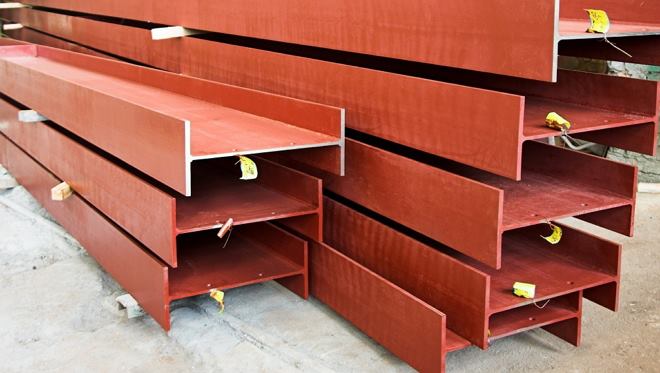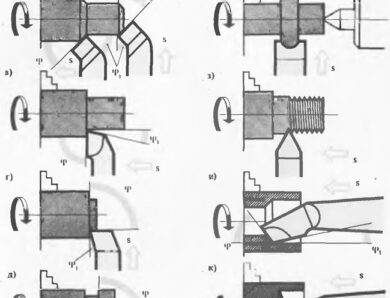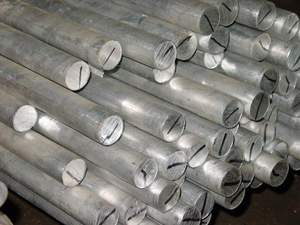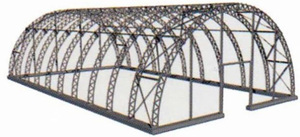Steel low-carbon galvanized wire: types and GOST
Wire is a galvanized steel rod, stretched by drawing through dies into a long product. The wire has a different hexagonal cross section, round, triangular, square. Wire products are made of different metals: copper, steel, tin, bronze, and so on.
Technical characteristics of galvanized steel wire, according to GOST
Steel, of which the wire is made, differs in chemical composition, which gives it certain characteristics. So, wire, where the carbon content is less 0,13% called low-carbon. Low carbon makes it more elastic and soft. The cross section of low-carbon steel wire according to GOST can be 0.21-6.2 millimeters.
Packing of products, may be:
-
in sandwiches on 450-500 kg;
- in skeins 15-120 kg;
- in heavy-duty bays 1100-1350 kg;
- in rosettes 400-700 kg.
Also, it is possible to make a wire with parameters, not specified in GOST:
- Package (packing in a film, polypropylene, auxiliary rings for transportation, etc.. d.);
- Products with a negative tolerance to increase the running meter in one ton;
- Minimum oil volume (but in this case it can quickly become corroded);
- Sizes of skeins, which are suitable for the customer's equipment (outer and inner diameter of the bay);
- Clear restrictions on the lower and upper limits of strength;
- Phosphate coating of the product;
- Packing of heavy-duty bays on a pallet for convenience of transportation.
Production of galvanized steel wire with GOST requirements
Heat-treated low-carbon knitting wire is made by drawing from wire rod and subsequent heat treatment in firing furnaces. The workpiece is fired to give it more elastic mechanical properties. This allows it to withstand more bends and become softer.
Given the application, according to GOST, galvanized steel wire can be fired in a protective atmosphere (light firing) and in a normal atmosphere (black firing). During black firing, the steel is covered with a layer of scale due to its accelerated oxidation at elevated temperatures.
With light firing, in the furnace connect inert gas, and firing takes place in an oxygen-free environment. With such light firing, the galvanized workpiece is not oxidized and removed from the furnaces with light, without scale formation.
Ways to protect steel wire from corrosion
To protect the steel billet from corrosion, it is covered with a layer of zinc. GOST provides several coating technologies. But most often it is covered by hot-dip galvanizing technology.
This is better, than galvanic coating, which is brought to us from China, because hot-dip galvanizing can significantly reduce the amount of zinc on the product. With that in mind, that zinc on the workpiece surface, with hot-dip galvanizing, goes to bed, not very evenly, then the level of galvanization is indicated in gr./m. sq.
This indicator is determined as follows, take a piece of galvanized product, determine its mass on laboratory scales, and chemically remove from it completely zinc. Then weigh again. Knowing the size of the segment and its dissection, determine the surface area of the product. The difference in weight is divided by the area and get the amount of zinc per square meter of steel wire - the density of zinc coating is determined by GOST.
Features of production
Why some manufacturers have a galvanized product shines, and in some - the surface is not shiny, matte, gray? Because during galvanizing the workpiece is passed through a bath of liquid hot zinc. Then, when a wire with a jamb of zinc comes out of the bath, zinc in the hot state actively reacts with oxygen and a protective film appears, having a non-shiny surface and gray color.
But you need to throw dust in the eyes of the consumer and make the wire for him the most attractive! To do this, manufacturers after the release of the workpiece of zinc alloy install special cooling units. It is necessary, to cool the zinc quickly. In this case, zinc reacts with oxygen slowly and until then, until the customer purchases galvanized wire, the product will shine.
The customer will see after a while, that its wire is no different from that, which did not shine at first. There is nothing more you can do here, zinc in any case will be gradually oxidized. Therefore, it makes no sense to chase after shiny products, especially do not need to overpay for them. GOST regulates this amount of zinc:
- The density of zinc is from 50 gr./m. sq. at the intersection 2 mm to 80 gr./m sq.. at the intersection 5 millimeters.
- With a smaller cross section, the density of zinc decreases to 10 gr./m. sq. at a cross section of 0.21-0.31 millimeters.
Raw materials for production, requirements of GOST
Raw materials for manufacture are specified in GOST:
- wire rod D = 6,6 or 5,6 millimeters Century 0M (for D = 1.6–6.1 millimeters);
- St. 3 (for D = 4-6 millimeters);
- St. 1 KP (D = 0.9–6 millimeters);
- St. 08(A) (for D = 0.4–0.71 millimeters).
Manufacturers enjoy, usually, wire rod.
Using
Making nails - low-carbon heat-treated light wire cross section 1-6 mm. Nail manufacturers often choose heavy-duty skeins 1-1,3 tons.
Stretch marks for hop hanging. Use annealed non-galvanized wire cross section 1 mm and unfired not galvanized section 3 mm. Made of low carbon steel 2,5 mm make hooks, where the 1mm wire is attached, and stretch it between the supports. Necessary, that low-carbon steel was annealed (elastic), since unfired, during the break, springs and can injure workers.
For vineyards use galvanized unfired or annealed steel with a section of 2,1-2,5 mm in bays on 80-120 kg It is used to make grape wallpaper, by exaggeration between pegs.
Garden wallpaper for tree support - steel of ordinary quality unfired, intersection 3 mm In bays 80-120 kg, which is more convenient for its tension.
Rabitz mesh production - galvanized and light steel. Sections of 1.7–3.2 mm are used. Rarely use ordinary quality steel with a cross section of 1.3-6.2 mm From a wire of 5.2-6.3 mm make a net Rabitz for gabions, and skeins of small diameters are used for the production of plaster mesh. Manufacturers of Rabitz mesh, in which there are production machines for manufacturing, usually choose products in skeins 750-1200 kg.
- For the manufacture of woven mesh used knitted annealed non-galvanized and galvanized steel with a cross section of 0.24-2 ,1 mm.
- For the manufacture of welded mesh used unfired steel cross section 0,61-4,2 mm
- Some manufacturers use annealed steel, as the manufacture of other grids: hinged, corrugated, twisted mesh.
Galvanized products are used for communication lines. There is a GOST for overhead communication lines: galvanized steel wire for overhead lines (GUEST 1668.73). This wire is characterized by a small elongation, electrical resistance rating, and it is made of steel "T".
But according to GOST, manufacturers are reluctant to make wire. Since it is unprofitable to buy small volumes of steel "T", it is easier to make a running wire according to requirements of GOST 3282.74. It is quite suitable for communication lines. Its main disadvantage - it sags when overheated, but this does not affect its functions.
To do this, use unburned and annealed wire. The latter is easier to wind at height, but sags more in summer, as opposed to unfired. Diameters for communication lines are specified in GOST 2.2-2.7 mm. exept this, as an additional used 4 mm. With that in mind, that work with products at height, wire is bought in small bays for communication.
For the manufacture of barbed wire used annealed wire with a cross section of 1.6-2.9 mm.
As you can see, wire is widely used in various industries and agriculture. With, according to GOST, it is a raw material for the manufacture of various metal products: screws, bolts, nails, etc.. d. in addition, it is widely used, to make a netting, and different types of cables. It is also used in grounding devices, making metal brushes, paper clips, bucket handles, etc.. d.




